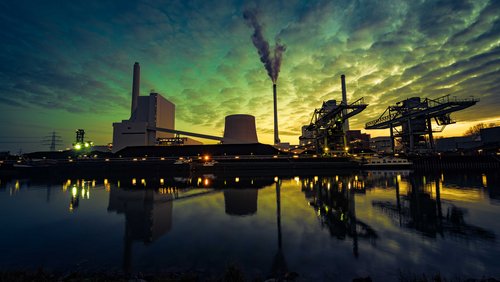Increasingly stringent energy consumption targets for the year 2030 flanked by national energy efficiency targets are about to being agreed at the EU level. A study by the German Economic Institute (IW) shows that these targets when applied to ETS-sectors, conflict with the overall aim of a cost-efficient decarbonization.

Energy consumption: Targets threaten efficiency of EU climate and decarbonization policies
Currently, European legislators discuss an update of the EU energy efficiency directive. The proposal comprises stringent energy consumption targets for the year 2030 which, in turn, are to be achieved by ambitious national energy efficiency policies in the EU member states.
A study by the IW however shows that energy consumption targets have the potential to impede effective and cost-efficient decarbonization. One reason is that large-scale decarbonization will rely on energy-intensive sector-coupling technologies, which will most likely increase energy consumption.
Secondly, the EU has a cost-efficient Emissions Trading System (EU ETS) in place. The additional energy efficiency instruments run counter to the aim of the ETS by increasing the cost of reducing CO2.
“In sectors covered by the EU ETS one should not be forced to use additional energy efficiency instruments. They add to the cost-burden for companies without helping the decarbonization efforts. Complementary policies that exclusively remedy market imperfections would make more sense, as would the inclusion of all relevant economic sectors into the EU ETS”, says IW energy expert Benjamin Tischler.
The IW study also shows that in sectors such as transport or heating still excluded from the trading system, energy efficiency policies could temporarily serve as a second-best option to speed up decarbonization and to spur the convergence of European CO2-prices, i.e. including the various national taxes and levies that member states are putting on CO2 emissions – a prerequisite for cost-efficient decarbonization.

Wissenschaft trifft Wirtschaft IV: Gemeinsam die Industrietransformation voranbringen
Am 5. und 6. September 2024 wird die Veranstaltung „Wissenschaft trifft Wirtschaft” unter dem Motto „Gemeinsam die Industrietransformation voranbringen” zum vierten Mal im Rahmen von SCI4climate.NRW und koordiniert durch das Wuppertal Institut stattfinden.
IW
LNG: Die Bedeutung der US-Importe für die deutsche Gasversorgung
Seit dem Ukraine-Krieg hat Flüssiggas aus den USA erheblich an Bedeutung gewonnen und ist nun ein zentraler Bestandteil der deutschen Gasversorgung. Der mittlerweile aufgehobene US-Genehmigungsstopp war kurzfristig unkritisch, verdeutlicht jedoch mögliche ...
IW